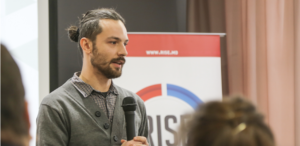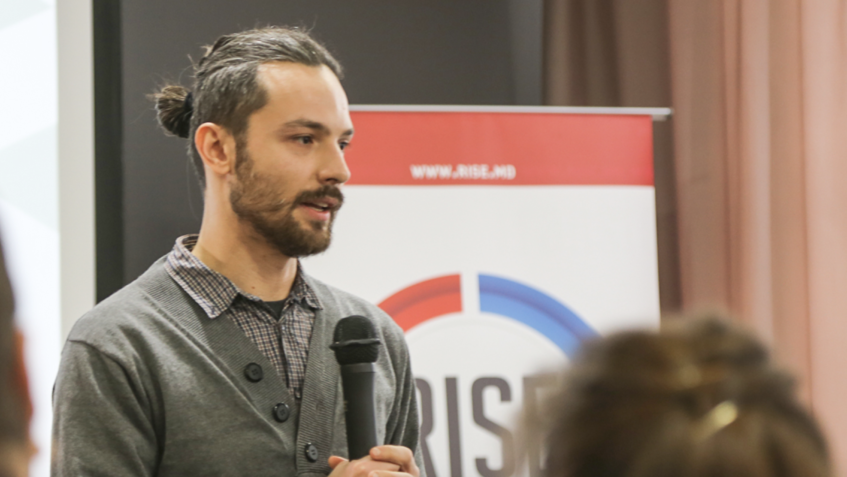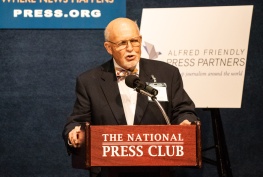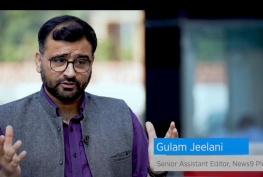
Dima Stoianov works for RISE, an organization of investigative journalists, programmers and activists from Moldova and Romania.
When the six Fellows from China, Moldova, Russia, Ghana, India and Afghanistan graduated in September after training at the Missouri School of Journalism and working in some of the country’s best newsrooms, the final phase of their fellowships began.
It was time to pay it forward; time to share with colleagues in their home newsrooms key lessons and expand the impact of the fellowships.
In Afghanistan, Humayoon Babur helped modernize Pasbanan Media Group’s website and planned to travel to Kunduz to train reporters in data journalism. Violence in the province kept Babur from driving there, so he set up a Skype session.
While most of the reporting in Afghanistan is related to conflicts, Babur is advocating for more coverage of social issues, agriculture, business, and the environment.
“Along with lessons about how to manage newsrooms and what skills and technology are needed, I really want to give them the idea of positive and constructive reporting,” he said.
When Yan Zhang left USA Today in Washington and returned to her Hong Kong-based news organization amid the protests roiling the city, she reconnected with classmate Dima Stoianov in Moldova.
She asked Dima if he would get on Skype and help train her newsroom colleagues in fact checking, digital security and online content verification through open-source intelligence. 
Stoianov learned methods to ensure the accuracy of stories while working for the Organized Crime and Corruption Reporting Network and its involvement with the Panama Papers project. He honed those fact-checking skills and digital security methods at the journalism school and in New York while working at ProPublica, the nation’s preeminent non-profit investigative reporting outlet.
The Initium gathered more than 20 reporters and editors on its staff from Hong Kong, Taipei and Tianjin for Stoianov’s webinar.
Stoainov also was a presenter at the final event for a ProFact project in Chisnau involving journalists from Ukraine and other countries in his region.
In the RISE Moldova newsroom where he works, Stoianov taught 11 colleagues editorial standards learned in the U.S. along with high-level reporting strategies. They included how to make requests through freedom-of-information laws and where to find valuable databases.
After Danish Raza returned to the Hindustan Times, he started creating a guide to reporting on Muslims, a minority population in India facing a torrent of discrimination led by Hindu nationalists.

Danish Raza, left, with Yan Zhang and Justice Baidoo in a radio studio practicing a podcast at the Missouri School of Journalism
“During my fellowship, I interacted with some of the best religion reporters across the USA,” Raza said, “and I asked them the dos and don’ts of their job.”
Raza’s handbook will target staffs of both traditional and alternative media organizations and is intended to help in a broad range of ways, from audience engagement tactics to shaping editorial policies to help make newsrooms more inclusive while covering Muslims.
“The handbook will be serve as a resource kit for journalists who want to put reporting about Muslim communities into context, see them as people rather than mere data, and differentiate between the motivations of an ordinary common Muslim and an Islamist militant,” Raza said.
“Accuracy, fairness and the principle of ‘do no harm’ will be the values at the core of this document.”





